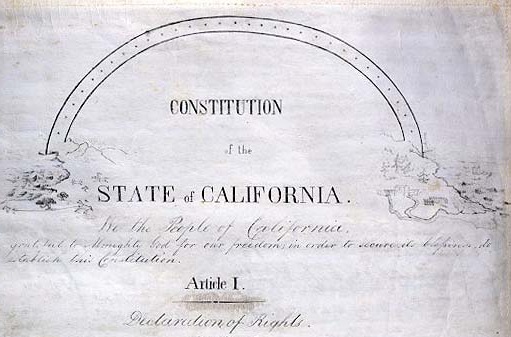
California State Capitol. (Photo: Kevin Sanders for California Globe)
An Overview of California’s Codes
California has just over 156,000 statutes that are contained in its 29 Codes
By Chris Micheli, August 5, 2022 6:20 am
California has just over 156,000 statutes that are contained in its 29 Codes. As a reader would expect, these 29 Codes vary in size, content, and approach. The following is an overview of the 29 Codes and some of their similar and different provisions.
Business and Professions Code
There are 13 Divisions
General Provisions are stand alone and not in a separate division
Topics covered include Department of Consumer Affairs, business rights, real estate, special regulations, cigarettes, alcohol, and cannabis
BPC – 10,036 Sections
Civil Code
There are 4 Divisions
Preliminary Provisions and definitions are stand alone and not in a separate division
Topics covered include persons, property, and obligations
CIV – 3,710 Sections
Code of Civil Procedure
This is the only Code that places its name after the word Code
There are 4 Parts
Preliminary Provisions are stand along and not in a separate division
Topics covered include courts of justice, civil actions, and special proceedings
CCP – 3,283 Sections
Commercial Code
There are 15 Divisions
General Provisions are in their own division
Topics covered include sales, negotiable instruments, letters of credit, title, leases, and fund transfers
COM – 646 Sections
Corporations Code
There are 6 Titles
General Provisions are stand along and not in a separate division
Topics covered include corporations, partnerships, LLCs, unincorporated
CORP – 2,405 Sections
Education Code
There are only 3 Titles
The topics include preliminary provisions, secondary education, and postsecondary education
EDC – 11,061 Sections
Elections Code
There are 22 Divisions
Preliminary Provisions are contained in a division
Topics covered include elections, voters, political parties, nominations, measures submitted to voters, recalls, ballots, election ballots, and voting systems
ELEC – 2,280 Sections
Evidence Code
There are 11 Divisions
Topics covered include judicial notice, burden of proof, witnesses, expert witnesses, hearsay evidence, and writings
EVID – 502 Sections
Family Code
There are 17 Divisions
Preliminary and general provisions are their own divisions
Topics covered include marriage, domestic partners, division of property, custody of children, minors, adoption, and support services
FAM – 1,715 Sections
Financial Code
There are 37 Divisions
General Provisions are stand along and not in a separate division
Topics covered include banking, financial information privacy, financial institutions, covered loans, securities, ATMs, credit unions, escrow agents, consumer finance, student loans, mortgage lending, financial literary, and debt collection
FIN – 3,335 Sections
Fish and Game Code
There are 17 Divisions
Topics covered include fish and game, birds and mammals, aquaculture, and Indian fishing
FGC – 2,275 Sections
Food and Agricultural Code
There are 25 Divisions
General Provisions are stand alone and not in a separate division
Topics covered include state and local administration, expositions and fairs, pest control, animals, cattle, bees and honey, dogs and cats, milk products, fruits and nuts, field crops, marketing, and industrial hemp
FAC – 9,760 Sections
Government Code
There are 59 Titles
General Provisions are stand along and not in a separate division
Topics covered include state government, counties, cities, local agencies, planning and land use, two dozen authorities and transportation entities, political reform, tribal gaming compacts, international relations, and health care entities
GOV – 21,114 Sections
Harbors and Navigation Code
There are 9 Divisions
General Provisions are stand along and not in a separate division
Topics covered include navigable waters, vessels, pilots, harbors, and ports
HNC – 1,290 Sections
Health and Safety Code
There are 67 Divisions
General Provisions are stand along and not in a separate division
Topics covered include public health, emergency medical services, sanitation, cemeteries, drug and alcohol programs, substance abuse, hospitals, health services, air resources, pollution control, vital records, health access, prescription drugs
HSC – 16,740 Sections
Insurance Code
There are just 5 Divisions
General Provisions are stand along and not in a separate division
Topics covered include classes of insurance, Insurance Commissioner, and insurance adjusters
INS – 4,479 Sections
Labor Code
There are 7 Divisions
General Provisions are stand along and not in a separate division
Topics covered include Department of Industrial Relations, employment relations, workers’ compensation, retraining, and employment safety
LLAB – 2,520 Sections
Military and Veterans Code
There are 8 Divisions
General Provisions are stand along and not in a separate division
Topics covered include veterans, emblems, cemeteries, military forces
MVC – 1,206 Sections
Penal Code
There are 6 Parts that cover all aspects of criminal law and procedure
Topics covered include crimes, punishment, criminal procedure, imprisonment, crime prevention, and control of deadly weapons
PEN – 5,638 Sections
Probate Code
There are 13 Divisions
Preliminary Provisions, Definitions, and General Provisions are in separate Division
Topics covered include guardianships, conservatorships, health care decisions, wills, intestate succession, trusts
PROB – 2,672 Sections
Public Contract Code
There are just 2 Divisions
It has Preliminary Matters and then all the remaining statutes fall under the General Provisions division that is focused on public contracting.
PCC – 1,571 Sections
Public Resources Code
There are 74 Divisions
General Provisions are stand along and not in a separate division
Topics covered include geology, oil, gas, forestry, parks, agricultural land, recycling, environmental protection, green energy, ten local conservancies, waste management, safe drinking water
PRC – 7,653 Sections
Public Utilities Code
There are 34 Divisions
General Provisions are stand along and not in a separate division
Topics covered include energy, Public Utilities Commission, utilities, aviation, transit boards, and eleven local transit agencies, and high-speed rail
PUC – 7,441 Sections
Revenue and Taxation Code
There are just 2 Divisions
General Provisions are stand along and not in a separate division
Topics covered include property taxes, personal income taxes, corporation taxes, sales and use taxes, and special taxes
RTC – 7,068 Sections
Streets and Highways Code
There are 19 Divisions
General Provisions are stand along and not in a separate division
Topics covered include city streets, county roads, state highways, expenditures of funds, multiple bond measures, tolling, and street lighting
SHC – 4,572 Sections
Unemployment Insurance Code
There are 8 Divisions
General Provisions are stand along and not in a separate division
Topics covered include employment services, tax withholding, workforce development, and unemployment and disability insurance
UIC – 904 Sections
Vehicle Code
There are 33 Divisions
General Provisions are stand along and not in a separate division, but defined words and phrases comprise Division 1
Topics covered include vehicle registration and sales, licenses, financial responsibility, rules of the road, transportation of certain types of materials, bicycles, and towing
VEH – 3,458 Sections
Water Code
There are 32 Divisions
General Provisions are stand along and not in a separate division
Topics covered include flood control, water quality, irrigation and water districts, water supply and conservation, wildfire prevention, and several local agencies
WAT – 10,058 Sections
Welfare and Institutions Code
There are 20 Divisions
General Provisions are stand along and not in a separate division
Topics covered include children, youth, mental institutions, older Californians, developmental services, long-term care, and the Department of Rehabilitation
WIC – 6,874 Sections
- Miscellaneous Civil Action Proceedings - February 23, 2026
- Probate Code Could Be a Basis for Statutory Interpretation Principles - February 22, 2026
- Conservation Banks - February 22, 2026





4 thoughts on “An Overview of California’s Codes”